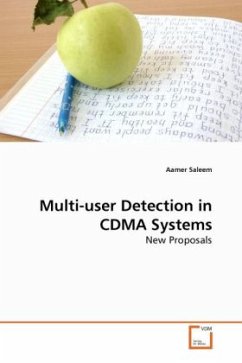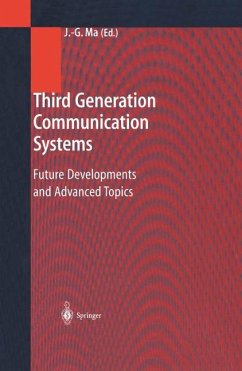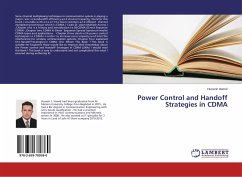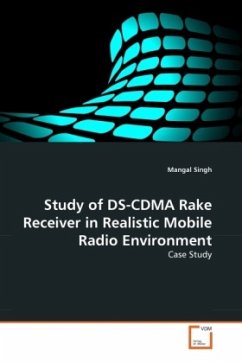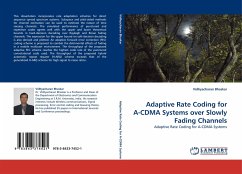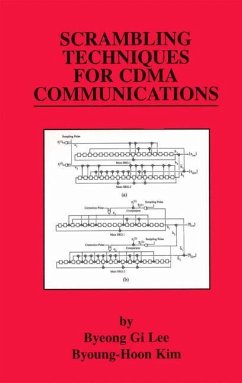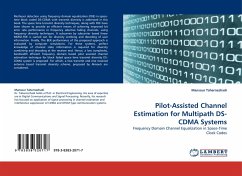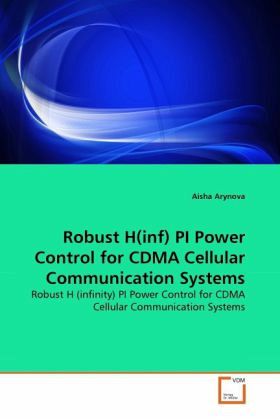
Robust H(inf) PI Power Control for CDMA Cellular Communication Systems
Robust H (infinity) PI Power Control for CDMA Cellular Communication Systems
Versandkostenfrei!
Versandfertig in 6-10 Tagen
32,99 €
inkl. MwSt.

PAYBACK Punkte
16 °P sammeln!
This thesis contributes in research about Power control, which defined here as adjusting ransmission power of mobile unit and maintaining Signal-to- Interference Noise Ratio (SINR) of received signal at a desired level. Power control helps to prolong the battery life of a mobile phone, reduces interference and increases the capacity of a system. All of these advantages contribute to preserve the Quality of Service (QoS) of a mobile communication link. As main power control constraints multi-path fading, multiple access interface (MAI) and round- trip delay have been taken. Two different contro...
This thesis contributes in research about Power control, which defined here as adjusting ransmission power of mobile unit and maintaining Signal-to- Interference Noise Ratio (SINR) of received signal at a desired level. Power control helps to prolong the battery life of a mobile phone, reduces interference and increases the capacity of a system. All of these advantages contribute to preserve the Quality of Service (QoS) of a mobile communication link. As main power control constraints multi-path fading, multiple access interface (MAI) and round- trip delay have been taken. Two different controllers, to compensate the effect of these constraints, are proposed: 1) Proportional-Integral (PI) controller and 2) Robust H1 state-feedback controller. Controllers are tested through a velocity range of mobile units from 20 km/h to 300 km/h. Values for power tracking error and outage probability are obtained and compared with already existing controller designs.




